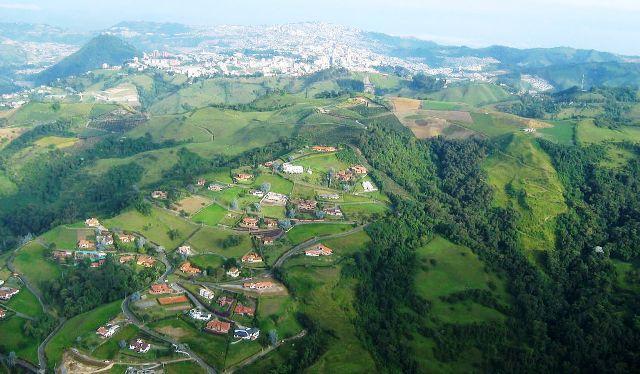Armenia, Antioquia, Colombia
Suggest Place to Visit
1983
Track to location with GPS |
 |
Since 1835 the coffee bean began to be cultivated commercially in Colombia in Salazar de las Palmas, Norte de Santander and during the 20th century it was the main product within Colombian exports. In 1999 it represented 3.7% of the national gross domestic product and 37% of agricultural employment. The main coffee producing departments are: Nariño, Norte de Santander, Antioquia, Valle del Cauca, Huila, Tolima, Caldas, Risaralda, Quindío and Cundinamarca.
The area between the departments of Caldas, Risaralda and Quindío, is known as the Coffee Axis due to the great development experienced by the cultivation of this product; This region was strongly affected by an earthquake measuring 6.2 on the Richter scale on January 25, 1999; subsequently the region recovered economically very quickly.
Currently in Colombia more than a million hectares of coffee are cultivated; More than three quarters of the coffee production in the country is destined for exports, being the third largest coffee exporter in the world. The domestic market is regulated by the National Federation of Coffee Growers of Colombia.
In 2004, the government of Colombia recognized the geographical indication of the product and in June 2005 it presented the request to the European Union to also be recognized as such, being the first non-European product to do so, recognition that was granted in September 2007 .
The Coffee Axis is a topographic region of Colombia, comprised in its extension by the departments of Caldas, Risaralda, Quindío, the north-eastern region of the department of Valle del Cauca and the entire southwestern region of Antioquia. The capital cities of the first three departments mentioned are Manizales, Pereira and Armenia respectively. This region was a great producer of rubber, at the beginning of the 20th century, but then it became more dedicated to coffee, one of the most important centers for importing and redistributing European-made goods. The same group of merchants that promoted these activities would be the one that years later would promote the industrial development of the area.
The climatic conditions (8ºC to 24ºC), geographical (Andean tropical forest) and geological conditions of this region determine the production of high quality coffee, with relatively short harvest periods. The peasants of the area have developed techniques for cultivating, harvesting and processing grain, and everything made "grain by grain", and they have preserved this way of processing the industry despite the new techniques of massive agricultural industrialization.
The famous advertising icon “Juan Valdez”, represented by a Paisa peasant wearing carriel, aguadeño hat and poncho, and accompanied by a mule, has become a triumph of advertising communication. Juan Valdez has been considered in the United States as the most memorable advertising image among the inhabitants of that country in 2005.
A characteristic of the region is the use of the pronoun vos instead of tú.
Creative and modern tourism
The Colombian Coffee Axis owes its happiness to coffee. The region, with the Paisa legacy, has created its own identity in its current customs, and with it has developed a commendable tourist culture. With colorful and sui generis architecture, this region offers visitors very inviting and local peculiarities. A curious case is the massive traditional use of North American Jeep Willis vehicles from the time of World War II. These Willis can be seen everywhere as transporters of people and cargo. This particular tradition has even come up with typical Axis words, such as the “jeepao” (it would read Yipao), which refers to the amount of things that one of these Willis can carry, in the same way as the content of a sack. It is called in Colombia ´´un costalao´´ (sack full of things).
The most important feature of this tourism industry ("Ecotourism") is that it is based on the offer of indigenous hotels in the region, the coffee growers (inhabitants of the Coffee Axis) came up with the idea of converting their old farms and traditional mansions, which they own Defined features of originality and beauty, in hotels never seen before in the Colombian tourist offer, full of life and traditions of the first Antioqueno settlers. Lovers of nature, especially of the peaceful, livable and inviting mountains, and of businesses linked to the agro-industrial and agricultural sector, will find comfortable accommodation and the most exclusive gastronomy of the region in the haciendas. In addition, schedules for tours of the coffee plantations. Also horseback riding and tourist adventures in the surroundings and nearby towns.
Theme parks
Today the region has developed the so-called "Theme Parks" ´´caferuza´´. Two of them, the Parque Nacional del Café, and the Parque Nacional de la Cultura Agropecuaria (Panaca), are widely known and visited by local tourists and foreigners. In the area there is also the Museum of Coffee Culture, where the process of the production of the grain is observed until the taste of a delicious Colombian coffee; This museum, like all the other theme parks, is a replica of the colonial city, where the tourist enjoys magnificent dance shows and native music, panoramic views from the cable car with a beautiful landscape, and various mechanical games.
A unique theme park of its kind in Colombia is Panaca. Its fundamental characteristic lies in the fact that, unlike zoos, here the visitor is immersed in a personal and direct contact with the animal kingdom. With these contacts and the other tourist activities of the Eje Cafetero, the tourist participates as an active actor in the tasks all of the mountain field.
No traveler can leave the Coffee Region without first visiting the ´´Matecaña Zoo´´ in the city of Pereira, it is not only considered one of the best in South America due to the number of animals of different species, but also due to the high reproduction rate , achieving even a few years ago the crossing of an African lion and a Bengal tiger, resulting in the Ligre. It also has the important Museum of Nature inside.
As alternatives for tourist distraction and entertainment, the Coffee Axis offers, among others, several alternatives. If you prefer relaxation and health, you can visit the municipality of Santa Rosa de Cabal, with its healthy Hot Springs, a ´´Spa´´ Spa where You can relax and enjoy the sulfur mud, discovering the landscapes of this beautiful town and its Gothic church. But if you like extreme sports such as Canopy, Rafting, Paragliding, Horseback Riding, Treeking, Sport Fishing, and Kayaking.
Comments
We don´t have yet any comments about:
Coffee Axis
Coffee Axis
Be the first to leave a comment as it is very important to inform other people
Outros locais a visitar
Within a radius of 20 km from:Coffee Axis
Armenia |
| 1,0 Km |
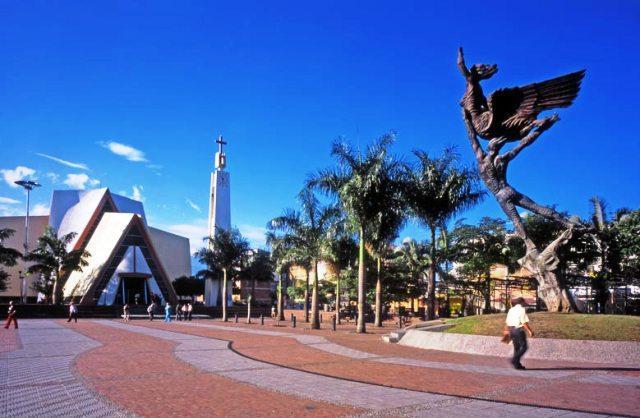 |
Parque Nacional del Café |
| 7,2 Km |
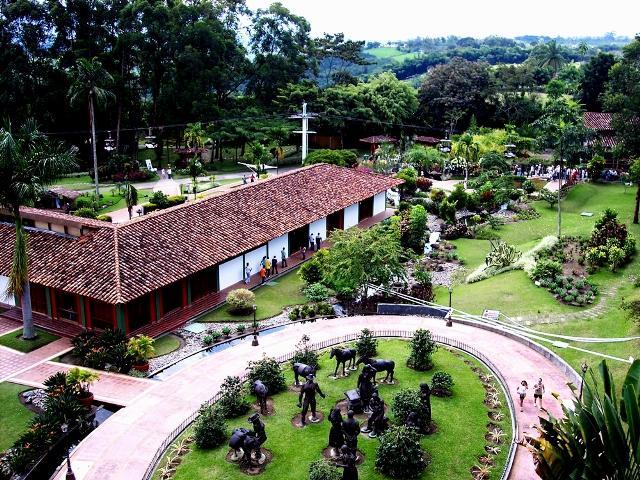 |
Quimbaya |
| 11,9 Km |
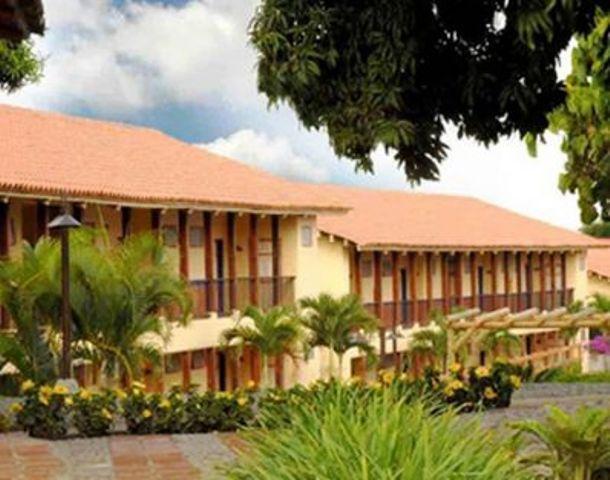 |
Parque Panaca |
| 15,3 Km |
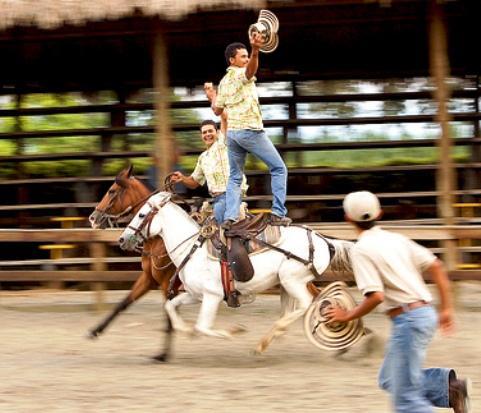 |
Good view |
| 19,9 Km |
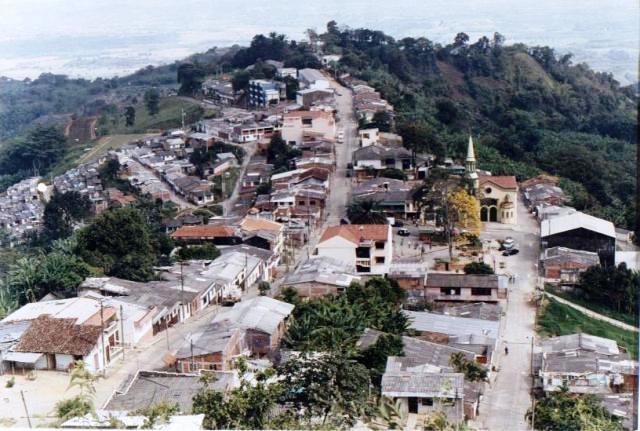 |
Hotel reservation near Coffee Axis within a radius of 20 km
Why to book with
The best prices
Our partnerships with the world´s largest operators offer research on the best market prices.
More options
At Rotas Turisticos you can book the hotel, buy the air ticket, book the transfer from the airport to the hotel and vice versa, book the local excursions, rent the car, take travel insurance and consult the places to visit and where to go.
Holiday Tips & Destinations
Hundreds of holiday destinations with all the options that allow you to easily choose the destination that best suits your dream vacation.
Links


